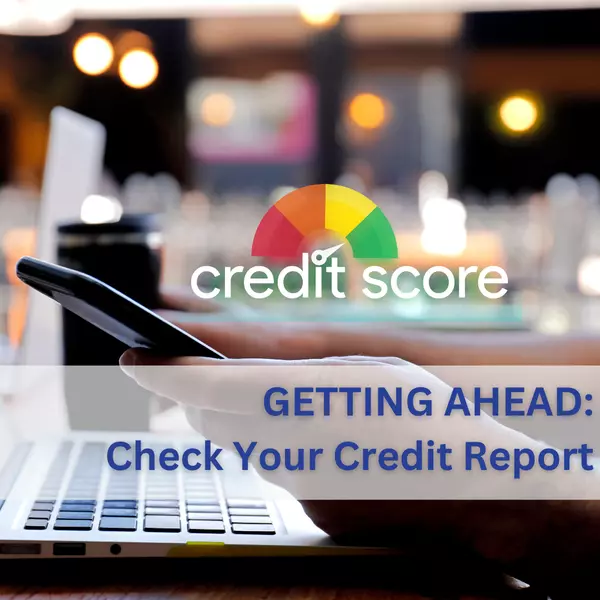1. Establish Your Budget and Understand the Full Costs
Before starting your home search, it’s crucial to set a clear budget. While your mortgage payment is the largest monthly cost, it’s important to account for other expenses like property taxes, homeowners insurance, maintenance, utilities, and possible Homeowners Association (HOA) fees if you're considering a condo or townhome. These additional costs can add up, so working closely with a local Realtor® can help you get a realistic picture of what you can afford.
Additionally, you’ll need to budget for upfront costs such as a down payment, closing costs, and reserves for emergency repairs or home improvements. Our team can guide you through these considerations to ensure you’re financially prepared for homeownership.
2. Get Preapproved for a Mortgage
Securing preapproval is an essential step before you begin house hunting. Preapproval helps you understand exactly how much you can borrow, giving you a clear budget and showing sellers that you're a serious and qualified buyer. To get preapproved, you'll need to gather important documents like proof of income, tax returns, and information on debts or loans. Your lender will also check your credit, so it's a good idea to review your credit score beforehand.
A strong credit score can lead to better loan terms, lower interest rates, and reduced private mortgage insurance (PMI) requirements. If your credit needs improvement, your lender or Realtor® can help you create a plan to increase your score before you apply.
3. Manage Debt and Improve Credit
Lenders will evaluate your debt-to-income ratio (DTI), which is a critical factor in mortgage approval. Ideally, your DTI ratio, including the future mortgage payment, should be below 36%, though some lenders allow up to 43%. To improve your chances of qualifying for a mortgage with favorable terms, focus on paying down credit card balances and reducing outstanding loans.
Additionally, regularly check your credit report for any errors and dispute inaccuracies with credit bureaus. Improving your credit score by lowering credit card utilization and managing debt responsibly can significantly impact your ability to secure a good mortgage.
4. Research Neighborhoods and Property Types
Broward County is home to a wide range of neighborhoods and housing options, including single-family homes, townhomes, and condominiums. Each option has its own set of advantages and costs. For example, while single-family homes offer more privacy, they may come with higher maintenance costs and property taxes. Condos and townhomes can be more affordable, but they often come with monthly HOA fees to cover shared amenities and maintenance.
Your Realtor® will be instrumental in helping you evaluate neighborhoods based on factors like school districts, walkability, access to transportation, and proximity to recreational areas. It’s important to visit potential neighborhoods at different times of the day to get a feel for the community and assess traffic, noise levels, and overall convenience.
5. Compare Mortgage Rates and Loan Options
While it may be tempting to go with the first lender you meet, shopping around for mortgage rates can save you thousands of dollars over the life of your loan. Different lenders offer varying interest rates and fees, so it’s essential to compare offers from several institutions. Beyond interest rates, be sure to review closing costs, points, and any additional fees that might be involved.
Our team has fantastic lender recommendations and they can help you explore different types of loans—such as FHA, VA, or conventional loans—and determine which is best for your situation. They also have programs available that may help with closing assistance or interest rate buyouts. In some cases, putting down a larger down payment can help you avoid PMI and lower your monthly mortgage payment. Our mortgage professionals can guide you through these options to find the best loan for your needs.
6. Narrow Your Search and Stay Realistic
Once you have your preapproval in hand and a clear budget in mind, it’s time to start looking at homes. It’s important to stay realistic about your expectations. You may not find a home with every feature on your wishlist, but prioritizing your must-haves will help you focus on what matters most—whether that’s location, size, or specific amenities.
Your Realtor® can help you filter through the vast inventory of homes available in Broward County, focusing on those that meet your criteria. They’ll also help with evaluating potential homes for hidden costs, like property taxes and maintenance expenses, and assist with negotiating offers and navigating the closing process.
7. Prepare for the Long-Term
Homeownership comes with responsibilities beyond just the financial aspect. Once you purchase a home, you’ll need to stay on top of regular maintenance, repairs, and other homeowner duties. It's wise to set aside an emergency fund to cover unexpected expenses like appliance repairs, roof replacements, or plumbing issues. Having a couple of months’ worth of mortgage payments in savings can help cushion against financial strain if an unexpected situation arises.
By following these steps and partnering with a knowledgeable Realtor® and mortgage professional, you'll be better equipped to make informed decisions and find a home that fits both your lifestyle and budget. Broward County offers a diverse range of housing options, and with careful planning, you'll be on your way to making your first home purchase a successful and enjoyable experience.
Source: Forbes and Florida Realtors®












